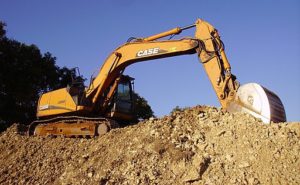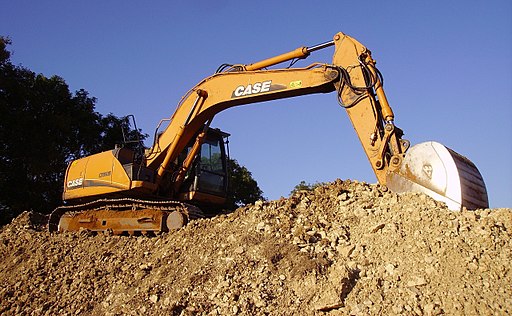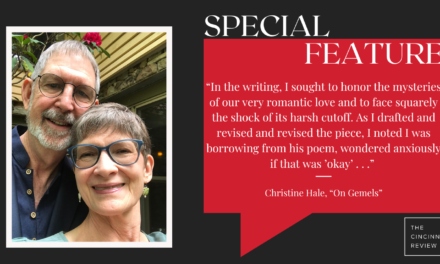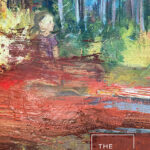We love that contributor JP Grasser’s poem “excavate” is featured on Poetry Daily today! To complement the poem, here’s his reflection on its origins:
JP Grasser: I’ve spent the last three years trying to understand the nature of griefwork, its seeming paradox: You strive to dig up loss, dust it off, and bring it into the light.
Put it on display. Frame it, bind it, make of it an objet d’art.
But absence is not a thing you can hold and you cannot remove removal from the ground where it’s buried.
And it is work—the slow process of sifting through each discrete & stratified emotion that has clouded the memory as silt does water.
 As a child, my prized artifact was a woolly mammoth’s molar, unearthed at my grandparents’ fish farm outside Brady, Nebraska. Perennially, I brought it to show-and-tell. What a dino-kid I was—& am.
As a child, my prized artifact was a woolly mammoth’s molar, unearthed at my grandparents’ fish farm outside Brady, Nebraska. Perennially, I brought it to show-and-tell. What a dino-kid I was—& am.
When I-80 went through on its long parade west, the road crew dug gravel pits as they went. (Small graves.) The holes in the earth filled with rain. Later my grandfather paid workers to expand these pits into ponds. The hired men & their monolithic machines discovered the fossil.
I imagine their machines spit rock-chips on the bank. I imagine these stones must’ve piled up. They must’ve looked something like a cairn.
In college, I memorized Robinson Jeffers’s poem “To the Stone-Cutters.” It was the shortest poem I could find in the Norton. And it returns to me from time to time:
Stone-cutters fighting time with marble, you foredefeated
Challengers of oblivion
Eat cynical earnings, knowing rock splits, records fall down,
The square-limbed Roman letters
Scale in the thaws, wear in the rain. The poet as well
Builds his monument mockingly;
For man will be blotted out, the blithe earth die, the brave sun
Die blind and blacken to the heart:
Yet stones have stood for a thousand years, and pained thoughts found
The honey of peace in old poems.
The ponds became the cornerstone of the fish business, slowly metamorphosing into full ecosystems, replete with life. How they thrived in spite of us.
How impossible that the symbol of my dead is a swirl of life. How true.
I imagine the great inland ocean that covered the plains. I imagine this ocean freezing. It feels startling.
A frozen ocean has every hallmark of a metaphor, but it isn’t one.
There is, for me, a desire (desperation?) to literalize grief. Already it is an amorphous & abstract beast. It craves a form. In this respect, it’s not so different from love.
Sometimes it behaves like the strata of geologic time. Sometimes, a fistful of water.
So you dig & dig, with the goal to—what?—hold emptiness heavy in your hands?
But I believe there is worth to this work and it is, after all, work that must be done one way or another.











